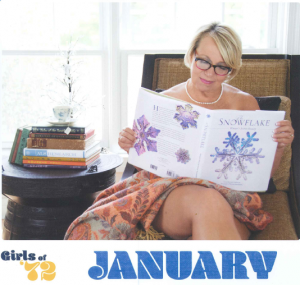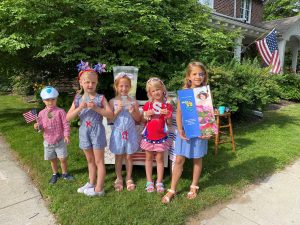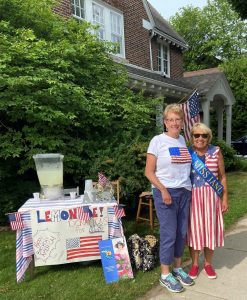Johns Hopkins UniversityEst. 1876
America’s First Research University
The coast of Lake Michigan in Sheboygan, Wisconsin, was the setting for an enduring friendship among 13 women. Together they celebrated many milestones, including their 1972 graduation from North High, college commencements, and weddings. But a health diagnosis reunited the classmates back to their hometown to support their friend Wendy Prigge Rauwerdink, who was diagnosed with amyotrophic lateral sclerosis (ALS) in 2011.

The group developed Calendar Girls — a onetime project honoring their friend with the proceeds benefitting the Robert Packard Center for ALS Research at Johns Hopkins, a global collaborative community focused on pushing the limits of scientific knowledge and driving breakthrough science to alter the course of ALS.
ALS, also known as Lou Gehrig’s disease, is a fatal motor neuron disease characterized by progressive degeneration of nerve cells in the spinal cord and brain. Over a period of three to five years, the disease progresses, affecting the function of nerve cells responsible for muscle movement, and one’s ability to move, speak, eat, and breathe. Currently, there is no cure for the fatal disease.
Suzette Warmus, better known as Miss January, first met Prigge Rauwerdink in high school where they became fast friends, even rooming together in college. When Warmus and her other friends learned about Prigge Rauwerdink’s diagnosis they sprang into action, supporting her and her family. For Warmus, it was “Wednesdays with Wendy.” She recalls when Miss May, or TC McCarty, pitched the idea of a tasteful, au naturel 2017 ALS awareness calendar — featuring their circle of friends.
“Initially the calendar was only for Wendy. We then realized it was much bigger. Once you put a name and a face to ALS it becomes your cause,” says Warmus. “Wendy wrote a tribute in the calendar. In the photos, we are wearing Wendy’s pearls and our 1972 yearbook is on display, along with a book titled ALS Research. Wendy saw the final version of the calendar.”
The calendar was published in fall 2016, and Prigge Rauwerdink died in spring 2017.

When her friend became nonverbal, Warmus shares how she would hold her hand, talk to her, and reminisce.
“We could have a complete conversation. And we’d smile,” says Warmus. “Wendy’s life was more than ALS. She was larger than life in a quiet, unassuming way. She was a remarkable woman, but her biggest gift to us was the calendar because we are such a tight group.”
The back picture of the calendar features Prigge Rauwerdink in her bedroom surrounded by her calendar girls. To their surprise, when the calendar became available for purchase, it became a hit with sales in Sheboygan and across the state. They marched in local parades, proudly wearing sashes representing their respective month and bringing more attention to the importance of ALS research.
“It was bittersweet because as we were doing this, we watched Wendy decline. It’s not an easy thing to watch,” says Warmus. “You soon realize everybody knows someone who’s been touched with ALS.”

It’s why for the past seven summers Warmus and her grandchildren have organized a lemonade stand every Fourth of July in Sheboygan benefiting ALS research. Warmus doubles the funds raised and sends the donation each year to the Packard Center.
“It’s not a lot of money, but it’s the idea behind it. I believe every little bit helps,” says Warmus. “The research being conducted at the Packard Center is so important.”
Meg Whiteford, senior associate director of development at the Packard Center, expresses her appreciation to the Warmus family.
“We are thrilled about the intergenerational awareness of ALS, the demonstrated empathy, philanthropic efforts, and actions taken to support the world’s top ALS researchers,” says Whiteford. “As an organization wholly funded through philanthropy, we greatly value our partnership with the Calendar Girls of ’72, their families, and communities.”
Warmus stresses every action no matter the size is key to bringing continual awareness and compassion towards ALS. But most importantly, it’s the power of friendship.
“It’s unbelievable what small acts can do,” says Warmus. “I’m blessed to have been a part of Wendy’s life. She was so proud of us calendar girls and so grateful. She was an amazing woman. I often tell people I am what I am today because of Wendy.”
Topics: Friends of Johns Hopkins Medicine, Johns Hopkins Medicine, Neurology, Fuel Discovery, Strengthening Partnerships